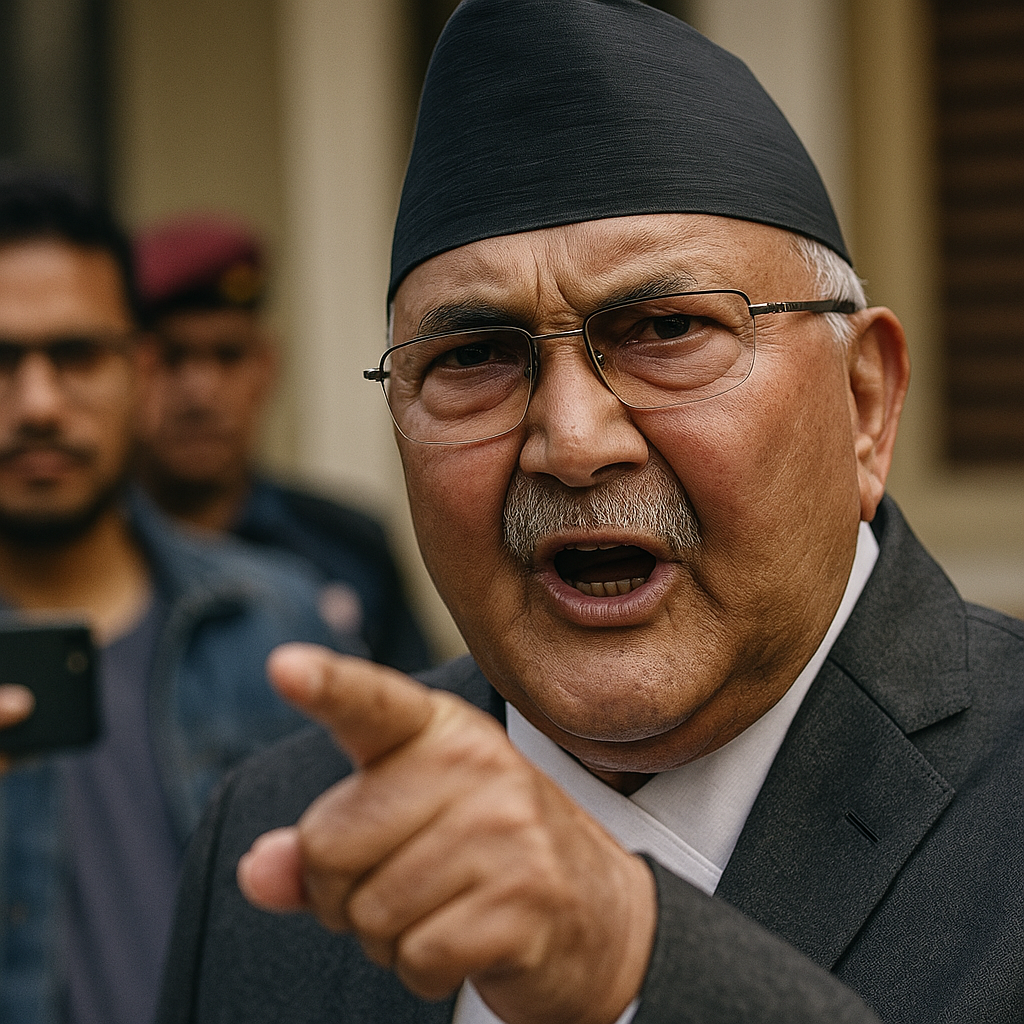Oli’s Digital Authoritarianism! Social Media Ban to Silence Criticism
Oli’s Digital AuthoritarianiA Failed Attempt to Stifle Dissent or a Pretext for Crime Control?”

The Nepal government’s decision to impose a blanket ban on social media platforms has unleashed a storm of political, social, and technical debate. While officials cite registration issues and a Supreme Court order as justification, politically the move is widely seen as an attempt to suppress mounting criticism against the government.
Soon after the ban was announced, Kathmandu Mayor Balen Shah openly defied the order, posting on Facebook itself: “It feels suffocating after Facebook was banned. Now we can only see what others are doing, but we can’t be heard when we speak! It’s tough for those of us who give speeches.” Shah is the same mayor who once threatened to set fire to Singha Durbar (the seat of government) through a Facebook post.
He was not alone. Former Prime Minister Pushpa Kamal Dahal “Prachanda” denounced the decision as unconstitutional and undemocratic, writing: “The government has taken the draconian step of banning social media in outright violation of constitutional freedom of expression. This not only strips away fundamental rights but also complicates communication between millions of migrant workers abroad and their families back home.”
In Dharan, outspoken Mayor Harka Sampang mocked the ban by posting on Facebook almost every hour, while leaders close to Rabi Lamichhane’s RSP party also ran widespread anti-government campaigns on the very platforms declared illegal. According to high-level government sources, these leaders were fueling the rise of a “cyber army” against the administration—something that intelligence agencies were closely monitoring. Critics argue that the ban is clearly a tool to curb political dissent, not crime.
The government insists otherwise, claiming the decision was needed due to rising crimes linked to social media. Yet critics counter that Nepal’s police are already plagued by political pressure in filing cases, investigations lack impartiality, and cases are often buried under the guise of “mediation.” In such an environment, banning social media under the pretext of crime control looks more like a mechanism to silence critics than to deliver justice. One example fueling suspicion is an allegation that the communications minister used an official ministry letterhead to pressure Facebook into suspending the page of an online media outlet critical of him. This, observers argue, shows how social media is manipulated for political revenge rather than genuine criminal investigations.
The government has also added a technical justification: major platforms like Facebook and YouTube are not registered in Nepal, and therefore the ban is consistent with a Supreme Court ruling. Experts, however, say that while pushing companies to register locally is valid, blocking entire platforms is an extreme and disproportionate response. Instead of solving problems, it throws millions of ordinary users into unnecessary crisis.
Under Prime Minister K.P. Sharma Oli’s leadership, the social media ban is increasingly seen as a weapon of public opinion control rather than crime control. What Nepal urgently needs, critics argue, is a stronger legal framework, technical capacity for the police to investigate crimes fairly, and an end to impunity for the powerful. Instead, by banning Facebook and YouTube to stifle critics, the government has laid bare its priorities.
This decision not only threatens the present but also signals a darker future—where freedom of expression and digital rights in Nepal may erode further, with serious consequences for democratic values and public trust.
Facebook Social Media




![From Kathmandu to the World: How Excel Students Are Winning Big [Admission Open]](https://www.nepalaaja.com/img/70194/medium/excel-college-info-eng-nep-2342.jpg)


